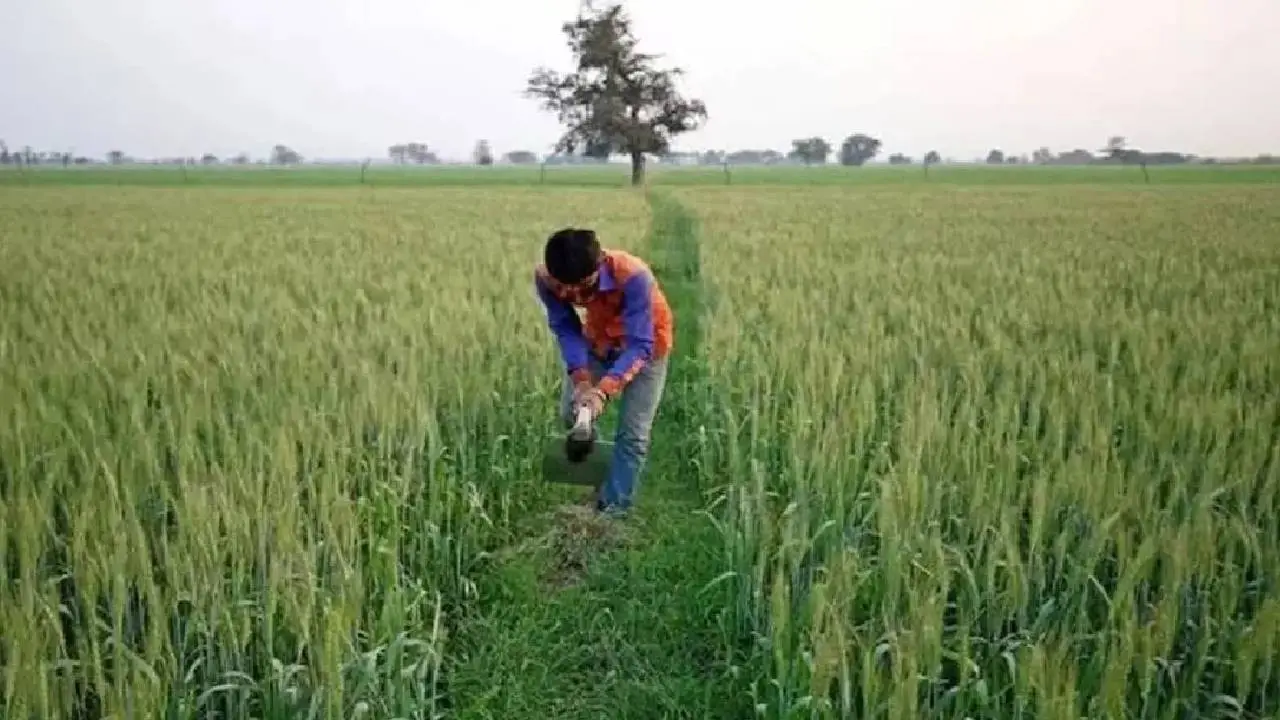
FARMER
National News: The government has declared a 6.59 percent increase in the Minimum Support Price of wheat, offering direct relief to farmers as they prepare for the next Rabi season. This announcement comes just before Diwali, making it a symbolic festival gift. Farmers will now get better returns for their crops, giving them more confidence ahead of the sowing cycle. The decision also reflects the government’s effort to balance inflation concerns with farmers’ needs. With higher MSP, rural incomes are expected to rise, boosting purchasing power in villages.
The new MSP rates are not limited to wheat alone. The government has approved price increases for six major Rabi crops in total. The revised rates include safflower, lentils, rapeseed and mustard, chickpeas, barley, and wheat. Each of these crops plays a critical role in India’s food security and farmer economy. By increasing the MSP, the government is ensuring that farmers are protected from market fluctuations. This move is based on recommendations by the Commission for Agricultural Costs and Prices (CACP).
Wheat farmers in particular will benefit from the Rs 160 per quintal hike in MSP. This increase, though moderate compared to others, provides steady assurance of returns. As wheat remains India’s largest cultivated Rabi crop, the decision impacts millions of farmers across Punjab, Haryana, Uttar Pradesh, and Madhya Pradesh. The government believes this step will strengthen food supply stability. For farmers, it means financial security during a season of rising costs.
The sharpest MSP rise has been given to safflower, with a massive increase of Rs 600 per quintal. This is a strong encouragement for oilseed farmers, as safflower has often remained undervalued. Lentils are next in line with a Rs 300 increase, showing a clear focus on pulses. This indicates the government’s broader goal of reducing import dependency on edible oils and pulses. By raising prices, more farmers may be encouraged to diversify crops.
Apart from wheat and safflower, rapeseed and mustard farmers will see an increase of Rs 250 per quintal. Chickpeas have been granted an increase of Rs 225 per quintal. Barley farmers too will benefit from a Rs 170 per quintal hike. These increases are designed to make farming more sustainable, covering rising input costs like seeds, fertilizers, and diesel. Farmers believe such moves can make farming viable again. However, market experts caution that procurement must be effective to ensure farmers actually benefit.
Information and Broadcasting Minister Ashwini Vaishnav confirmed that the decision was taken strictly on CACP recommendations. The aim is to secure farmers’ incomes while also maintaining national food security. Officials stated that these MSP hikes are well-calculated to balance farmer welfare and market stability. The move is also expected to reduce rural distress by guaranteeing fair returns. Leaders believe it could politically benefit the government ahead of elections, as farmers form a key voter base.
The announcement will likely uplift the rural economy, as higher MSP directly means more money in farmers’ pockets. This can lead to increased spending on essentials and boost rural demand for goods. Economists say that such measures can indirectly support India’s overall growth. However, they warn that without effective procurement systems, only select farmers may get full benefit. Still, for millions of cultivators, this Diwali has brought more hope than worry.





Copyright © 2026 Top Indian News
